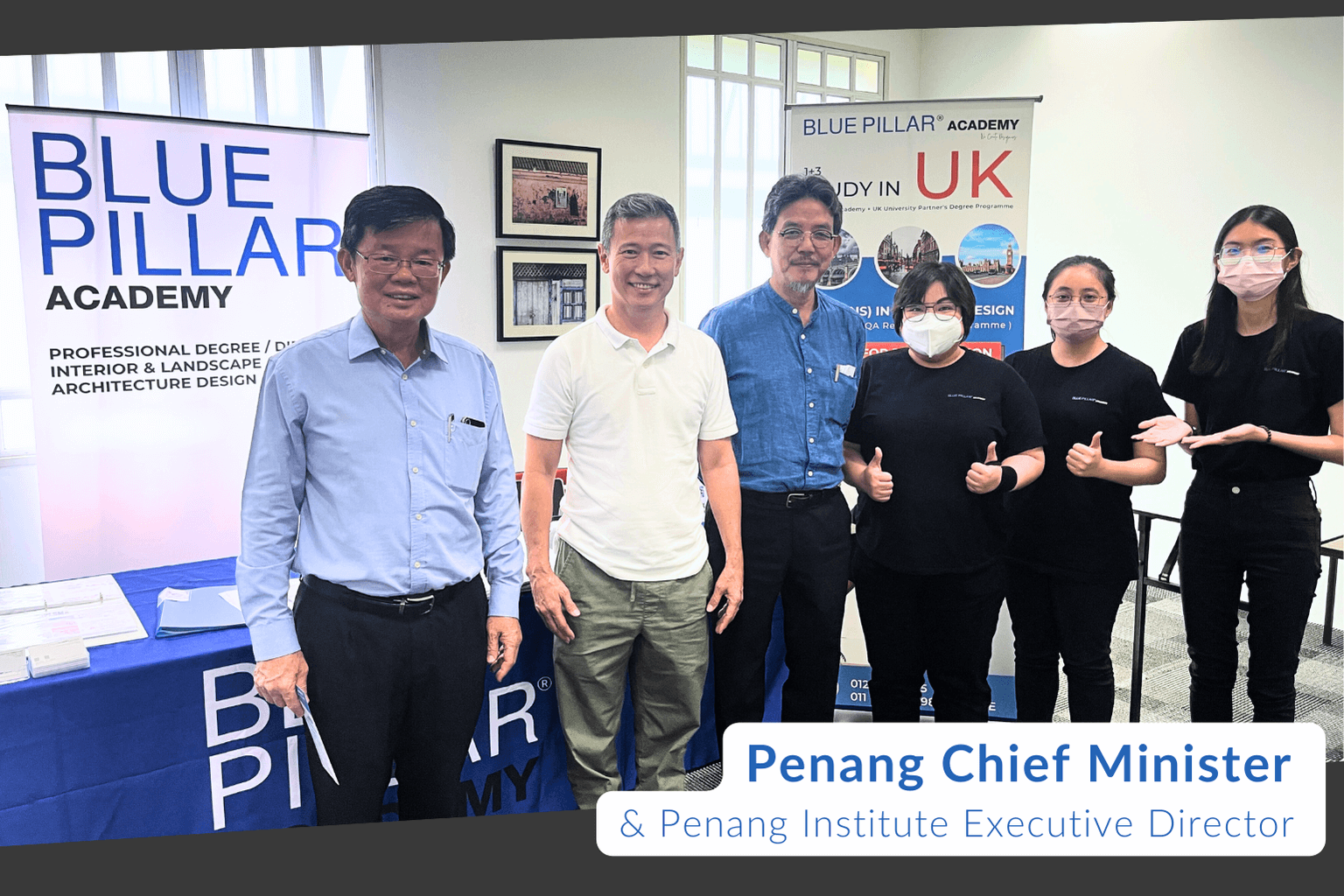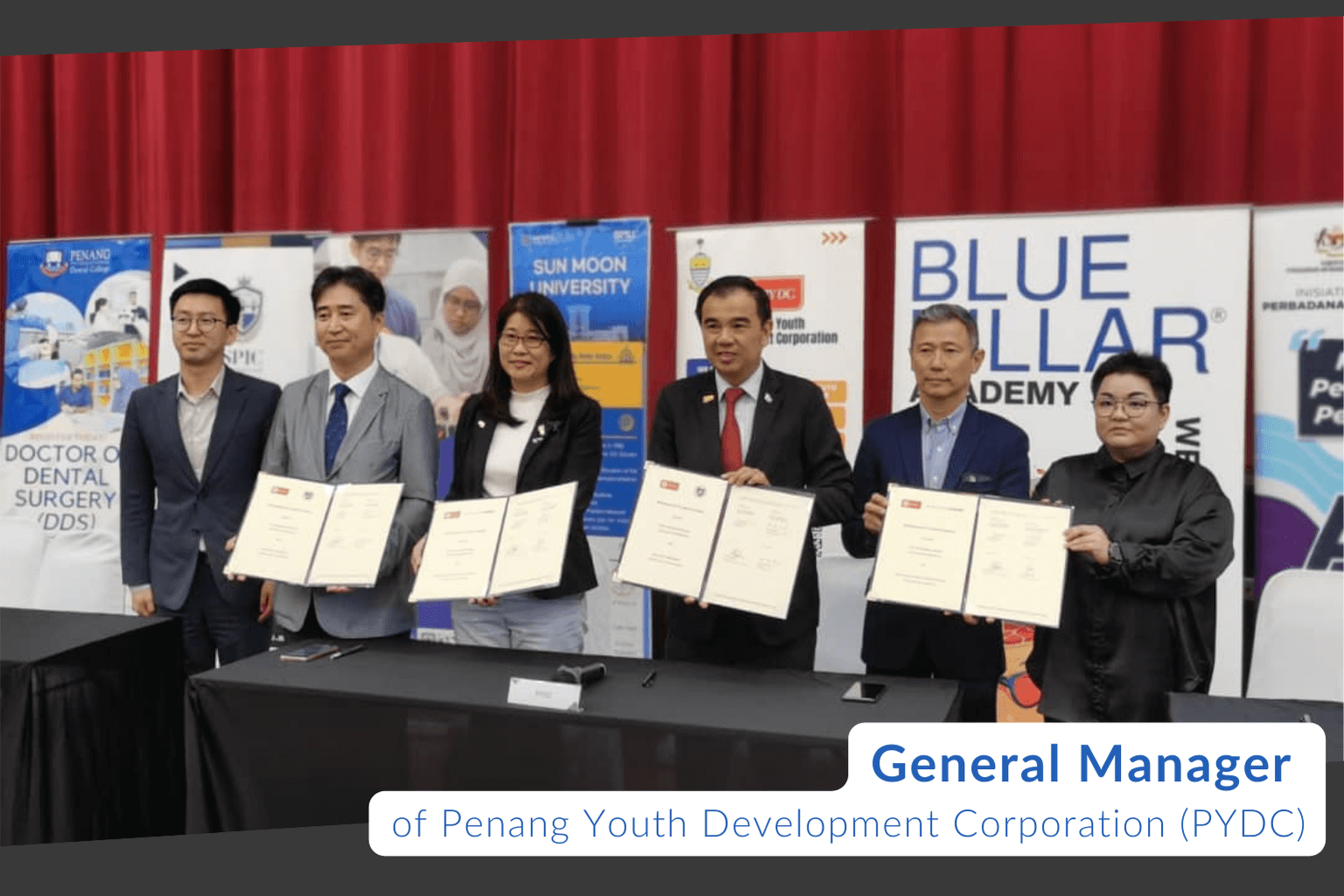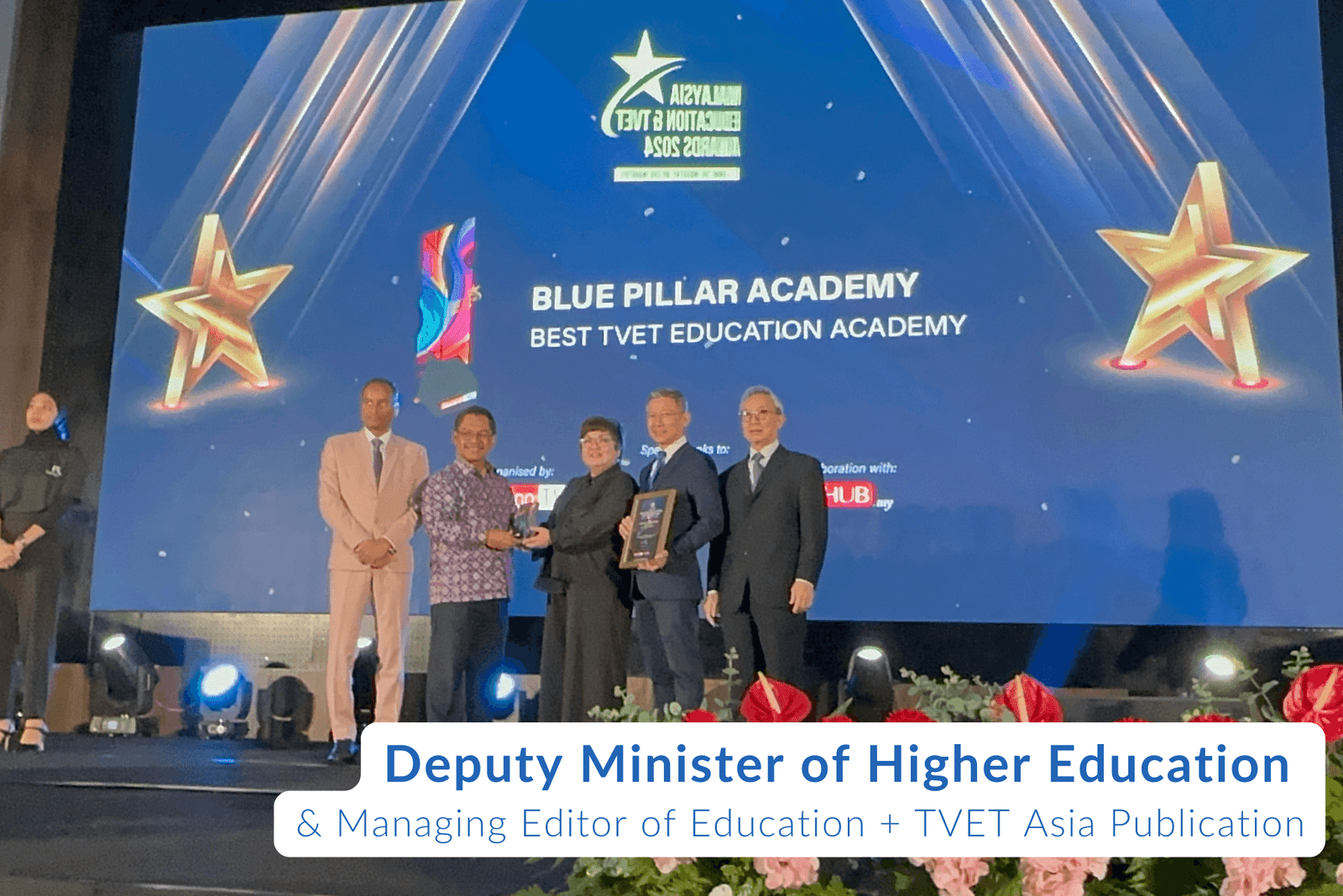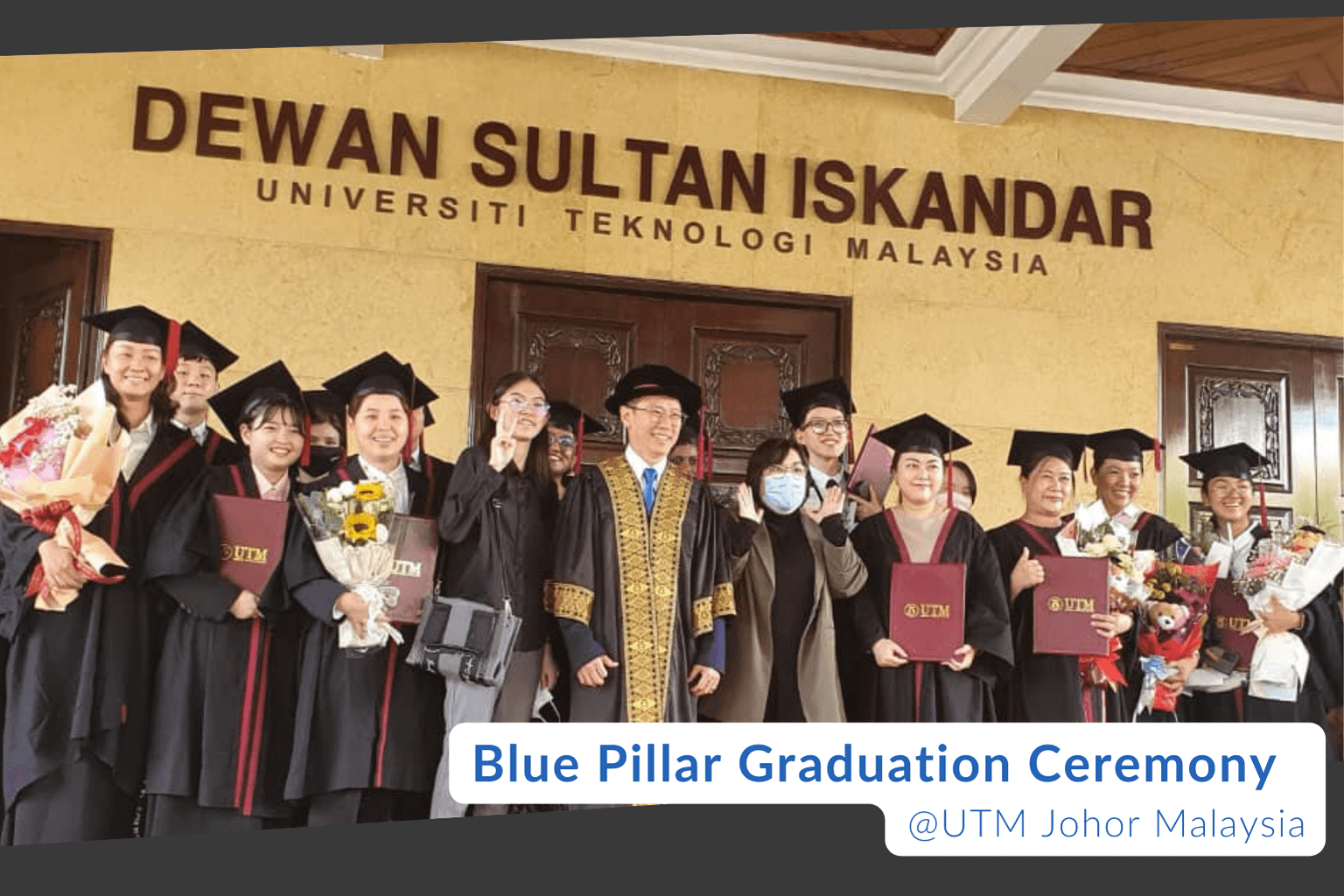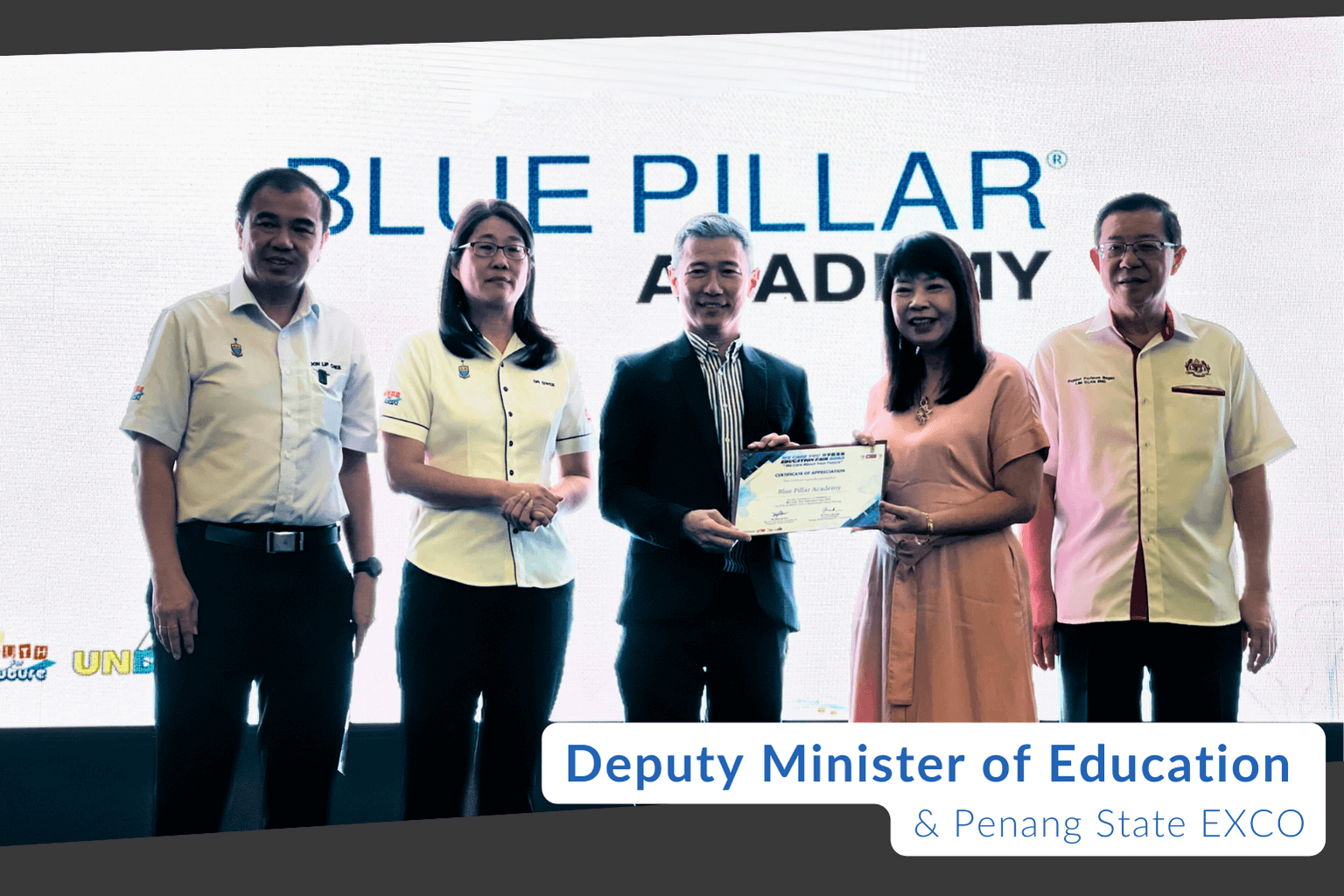Excel in Business Leadership
Advance your career with strategic management skills.
_(8).png)
Embark on your professional MBA journey with our comprehensive Master in Business Administration program. Designed for aspiring business leaders, this program equips you with essential skills in management, strategy, finance, and innovation. Whether you’re aiming to accelerate your career or pivot into a new field, this MBA program prepares you for success.
Limited-Time Early Bird Discount!
Master Business Strategies with Blue Pillar

Master Strategic Management
Learn to formulate and execute business strategies that drive organizational success and growth.

Innovate with Marketing and Finance
Gain insights into modern marketing practices and financial management, enabling you to make informed business decisions.

Practical Application
Apply your learning through real-world projects and case studies, developing practical skills that employers value.

Become a Business Leader
Develop leadership qualities essential for managing teams and steering businesses towards profitability and sustainability.
Career Opportunities
- Business Manager
- Marketing Director
- Operations Manager
- Human Resource Manager
- Strategic Consultant
- Entrepreneur
- Project Manager
- Business Development Executive
- Management Consultant
The “Entrepreneurship” module in a Professional Master in Business Administration program is designed to equip students with the knowledge, skills, and mindset necessary to identify, evaluate, and pursue entrepreneurial opportunities within various business contexts.
- Entrepreneurial Mindset and Opportunity Recognition: The module begins with fostering an entrepreneurial mindset, emphasizing creativity, innovation, and proactive problem-solving. Students learn to identify market gaps, trends, and opportunities that form the foundation for entrepreneurial ventures.
- Business Planning and Feasibility Analysis: Emphasis is placed on developing comprehensive business plans and conducting feasibility analyses for new ventures. Students learn to assess market demand, competition, financial viability, and scalability of their business ideas.
- Entrepreneurial Finance: The module covers financing options and strategies for entrepreneurial ventures, including bootstrapping, venture capital, angel investors, crowdfunding, and strategic partnerships. Students learn to evaluate financial risks and returns associated with different funding sources.
- Marketing and Sales Strategies: Practical applications include designing marketing strategies, positioning products/services, and developing sales plans tailored to entrepreneurial ventures. Students explore digital marketing, customer acquisition strategies, and building brand equity in competitive markets.
- Legal and Regulatory Considerations: Students learn about legal structures for startups, intellectual property rights, contracts, and regulatory compliance relevant to launching and operating entrepreneurial ventures.
- Managing Growth and Scaling Ventures: The module addresses strategies for managing growth, scaling operations, and navigating challenges associated with scaling entrepreneurial ventures. Topics may include organizational structure, leadership development, and managing change.
- Entrepreneurial Leadership and Team Building: Emphasis is placed on developing leadership skills specific to entrepreneurial environments. Students learn to build effective teams, motivate employees, and foster a culture of innovation and agility within startups.
- Ethics and Social Responsibility: The module may cover ethical considerations in entrepreneurship, corporate social responsibility (CSR), sustainability practices, and ethical decision-making in business operations.
- Case Studies and Guest Speakers: Practical insights are gained through analyzing case studies of successful and failed entrepreneurial ventures. Guest speakers, including successful entrepreneurs and industry experts, provide real-world perspectives and advice.
- Entrepreneurship Project or Business Plan Competition: The module often culminates in an entrepreneurship project where students develop and present a detailed business plan for a new venture. Some programs may include a business plan competition to showcase entrepreneurial ideas and receive feedback from industry professionals.
By the end of the module, students are expected to demonstrate proficiency in entrepreneurial thinking, strategic planning, financial management, marketing, and leadership essential for launching and growing successful ventures. They emerge with the skills and confidence to innovate, adapt to market dynamics, and create value in entrepreneurial endeavors.
The “Strategic Management” module in a Professional Master in Business Administration program focuses on equipping students with the knowledge, frameworks, and skills necessary to formulate and implement strategic initiatives that align with organizational goals and enhance competitive advantage.
- Fundamentals of Strategic Management: The module begins with an overview of strategic management concepts, theories, and frameworks. Students learn about the importance of strategic planning, analysis, and decision-making in achieving long-term organizational success.
- Strategic Analysis: Emphasis is placed on conducting comprehensive analyses of internal and external environments. Students learn to assess industry dynamics, competitor behavior, market trends, and organizational capabilities to identify strategic opportunities and threats.
- Strategy Formulation: Practical applications include developing strategic options and alternatives based on analysis findings. Students explore different strategic models, such as SWOT analysis, Porter’s Five Forces, and PESTLE analysis, to formulate effective strategies that capitalize on strengths and opportunities while mitigating weaknesses and threats.
- Strategy Implementation and Execution: The module covers strategies for translating strategic plans into actionable initiatives. Topics include organizational structure, resource allocation, leadership alignment, and change management strategies necessary for successful strategy implementation.
- Strategic Leadership: Students delve into the role of leadership in driving strategic initiatives forward. They learn about strategic leadership styles, decision-making processes, and fostering a culture of innovation and execution within organizations.
- Monitoring and Evaluation: Emphasis is placed on monitoring strategic performance and evaluating outcomes. Students learn to use key performance indicators (KPIs), balanced scorecards, and other metrics to assess the effectiveness of implemented strategies and make necessary adjustments.
- Global and Ethical Considerations: The module addresses strategic management challenges in global markets, including cultural differences, geopolitical risks, and international expansion strategies. Ethical considerations in strategic decision-making and corporate social responsibility (CSR) are also discussed.
- Case Studies and Applications: Practical insights are gained through analyzing case studies of organizations that have successfully implemented strategic initiatives. Guest speakers, industry experts, and simulations provide real-world perspectives and applications.
- Strategic Planning Project: The module may culminate in a strategic planning project where students apply their knowledge and skills to develop a comprehensive strategic plan for a real or simulated organization. This project allows students to integrate theoretical concepts with practical application, demonstrating their strategic thinking and analytical abilities.
By the end of the module, students are expected to demonstrate proficiency in strategic analysis, formulation, implementation, and evaluation. They emerge with the capability to contribute strategically to organizational success, navigate complex business environments, and lead strategic initiatives that drive sustainable growth and competitive advantage.
The “Corporate Finance” module in a Professional Master in Business Administration program focuses on the principles, theories, and practical applications of financial management within corporations.
- Financial Statement Analysis: The module begins with an in-depth analysis of financial statements, including balance sheets, income statements, and cash flow statements. Students learn to interpret financial data to assess the financial health and performance of companies.
- Capital Budgeting and Investment Decisions: Emphasis is placed on evaluating investment opportunities and capital budgeting decisions. Students learn about methods such as Net Present Value (NPV), Internal Rate of Return (IRR), and Payback Period to analyze investment projects and make informed decisions.
- Cost of Capital and Capital Structure: Practical applications include understanding the cost of capital and optimal capital structure decisions for maximizing shareholder value. Students explore concepts such as Weighted Average Cost of Capital (WACC), leverage ratios, and the trade-offs between debt and equity financing.
- Financial Markets and Instruments: The module covers financial markets, including equity markets, debt markets, and derivatives. Students learn about different financial instruments, such as stocks, bonds, options, and futures, and their roles in corporate finance.
- Corporate Valuation: Students delve into methods for valuing companies, including discounted cash flow (DCF) analysis, comparable company analysis, and precedent transactions analysis. They apply these valuation techniques to assess mergers, acquisitions, and corporate restructuring activities.
- Risk Management and Financial Strategies: Emphasis is placed on managing financial risks, including interest rate risk, currency risk, and operational risk. Students learn about hedging strategies, derivatives usage, and financial risk mitigation techniques.
- Dividend Policy and Shareholder Value: The module covers dividend policy decisions, dividend theories, and strategies for enhancing shareholder value through dividend payments and share buybacks.
- Corporate Governance and Ethics: Discussions include principles of corporate governance, board responsibilities, executive compensation, and ethical considerations in financial decision-making.
- Case Studies and Practical Applications: Practical insights are gained through analyzing case studies of financial decisions and strategies employed by real corporations. Guest speakers, industry experts, and simulations provide real-world perspectives and applications.
- Financial Modeling and Forecasting: Students develop skills in financial modeling and forecasting to support strategic decision-making and planning processes within corporations.
By the end of the module, students are expected to demonstrate proficiency in financial analysis, decision-making, and strategic financial management. They emerge with the ability to apply financial principles and techniques to address complex challenges, optimize financial performance, and create shareholder value in corporate settings.
The “Organizational Behavior” module in a Professional Master in Business Administration program focuses on understanding individual, group, and organizational dynamics within the context of business environments.
- Foundations of Organizational Behavior: The module begins with an exploration of key theories, concepts, and models related to organizational behavior. Students learn about individual behavior, motivation, personality, perception, and attitudes in organizational settings.
- Group Dynamics and Team Effectiveness: Emphasis is placed on understanding group dynamics, team formation, and development. Students explore factors influencing team effectiveness, communication strategies, conflict resolution, and decision-making processes within teams.
- Leadership and Influence: Practical applications include studying different leadership styles, leadership theories, and the role of leaders in influencing organizational culture, employee morale, and performance. Students learn about leadership development strategies and techniques for fostering a positive organizational climate.
- Organizational Culture and Change Management: The module covers organizational culture, its components, and its impact on employee behavior and organizational performance. Students learn about strategies for managing organizational change, overcoming resistance to change, and promoting organizational agility and innovation.
- Motivation and Employee Engagement: Discussions include theories of motivation, including Maslow’s hierarchy of needs, Herzberg’s two-factor theory, and Expectancy Theory. Students explore strategies for enhancing employee motivation, engagement, and job satisfaction within organizations.
- Organizational Structure and Design: Students delve into organizational structure types, including functional, divisional, matrix, and network structures. They learn about the implications of organizational design on communication, coordination, and performance.
- Ethical Behavior and Corporate Social Responsibility: Emphasis is placed on ethical decision-making, ethical leadership, and corporate social responsibility (CSR) within organizations. Students explore ethical dilemmas, ethical frameworks, and the importance of ethical behavior in maintaining organizational reputation and trust.
- Diversity and Inclusion: The module addresses diversity management, inclusion strategies, and their impact on organizational performance. Students learn about managing diverse teams, promoting inclusivity, and leveraging diversity as a source of competitive advantage.
- Employee Well-being and Work-Life Balance: Discussions include strategies for promoting employee well-being, work-life balance initiatives, and their impact on employee productivity, retention, and organizational success.
- Case Studies and Practical Applications: Practical insights are gained through analyzing case studies of organizational behavior challenges and best practices. Guest speakers, industry experts, and simulations provide real-world perspectives and applications.
By the end of the module, students are expected to demonstrate proficiency in understanding and managing organizational dynamics, fostering positive work environments, and enhancing organizational effectiveness. They emerge with the ability to apply organizational behavior theories and principles to address complex challenges, promote employee engagement, and drive organizational performance.
The “Marketing Innovation” module in a Professional Master in Business Administration program focuses on exploring new approaches, strategies, and technologies that drive innovation in marketing practices and enhance competitive advantage.
- Innovation in Marketing Strategy: The module begins with an exploration of innovative marketing strategies and frameworks. Students learn about leveraging emerging trends, consumer insights, and market dynamics to develop competitive marketing strategies.
- Product and Service Innovation: Emphasis is placed on innovation in product and service development, differentiation, and positioning. Students explore techniques for identifying market opportunities, conducting market research, and launching innovative products/services that meet customer needs and preferences.
- Digital and Social Media Marketing: Practical applications include understanding digital marketing channels, social media platforms, and content strategies. Students learn about data-driven marketing approaches, search engine optimization (SEO), pay-per-click (PPC) advertising, and social media analytics.
- Brand Innovation and Management: The module covers brand innovation, brand equity management, and strategies for building and sustaining strong brands in competitive markets. Students explore brand positioning, rebranding strategies, and the role of branding in driving customer loyalty and market share.
- Marketing Metrics and Performance Analytics: Discussions include measuring marketing effectiveness, ROI (Return on Investment), and KPIs (Key Performance Indicators) relevant to innovative marketing initiatives. Students learn to use analytics tools and data insights to optimize marketing campaigns and decision-making.
- Customer Experience and Relationship Management: Emphasis is placed on enhancing customer experience through innovative marketing strategies. Students learn about customer journey mapping, personalized marketing approaches, and strategies for building long-term customer relationships and loyalty.
- Innovation in Pricing Strategies: The module covers innovative pricing models, dynamic pricing strategies, and value-based pricing approaches. Students explore pricing tactics that align with market demand, competitive positioning, and profitability goals.
- Innovative Marketing Communication: Practical insights are gained through studying innovative marketing communication channels, such as influencer marketing, experiential marketing, and viral marketing campaigns. Students analyze case studies of successful innovative marketing campaigns and strategies.
- Ethical and Legal Considerations: Discussions include ethical considerations in marketing innovation, privacy concerns, and compliance with regulations such as GDPR (General Data Protection Regulation) and consumer protection laws.
- Case Studies and Practical Applications: Students apply theoretical concepts through analyzing case studies, developing marketing plans for innovative products/services, and participating in simulations or projects that require them to innovate marketing strategies in real or simulated business environments.
By the end of the module, students are expected to demonstrate proficiency in identifying opportunities for marketing innovation, developing and implementing innovative marketing strategies, and leveraging digital technologies to achieve marketing objectives. They emerge with the ability to lead marketing innovation efforts, drive organizational growth, and adapt to evolving market trends and consumer preferences.
The “Project Management” module in a Professional Master in Business Administration program focuses on equipping students with the knowledge, skills, and tools necessary to effectively initiate, plan, execute, monitor, control, and close projects within organizations.
- Introduction to Project Management: The module begins with an overview of project management concepts, methodologies, and frameworks. Students learn about the project life cycle, project management processes, and the role of a project manager in achieving project objectives.
- Project Scope and Requirements Management: Emphasis is placed on defining project scope, establishing project requirements, and managing stakeholder expectations. Students learn techniques for scope identification, scope definition, and managing scope changes throughout the project lifecycle.
- Project Planning and Scheduling: Practical applications include developing project plans, work breakdown structures (WBS), and project schedules. Students learn about critical path analysis, resource allocation, task dependencies, and estimating time and cost for project activities.
- Project Risk Management: The module covers techniques for identifying, analyzing, and managing project risks. Students learn about risk mitigation strategies, contingency planning, and risk response planning to minimize project disruptions and achieve project success.
- Project Quality Management: Discussions include quality planning, assurance, and control processes within projects. Students explore techniques for ensuring project deliverables meet quality standards and customer expectations.
- Project Budgeting and Cost Management: Emphasis is placed on budgeting techniques, cost estimation, and cost control measures. Students learn to develop project budgets, monitor project expenditures, and manage cost variances to ensure projects are completed within budget constraints.
- Project Communication and Stakeholder Management: The module covers strategies for effective project communication, stakeholder engagement, and conflict resolution. Students learn about communication plans, stakeholder analysis, and maintaining positive stakeholder relationships throughout the project lifecycle.
- Project Leadership and Team Dynamics: Practical insights are gained through studying leadership styles, team development stages, and motivational techniques for project teams. Students learn to foster collaboration, empower team members, and resolve team conflicts to enhance project performance.
- Project Execution and Monitoring: Discussions include techniques for executing project plans, monitoring project progress, and controlling project performance. Students learn about project status reporting, milestone tracking, and implementing corrective actions to address deviations from project plans.
- Project Closure and Evaluation: The module covers project closure processes, including conducting lessons learned sessions, project reviews, and finalizing project documentation. Students learn about project evaluation techniques and post-project analysis to identify successes, challenges, and areas for improvement.
- Agile Project Management: Depending on the program, there may be a focus on agile project management methodologies, including Scrum, Kanban, and Agile frameworks. Students explore adaptive planning, iterative delivery, and continuous improvement practices in managing complex projects.
- Case Studies and Practical Applications: Students apply project management concepts and techniques through analyzing case studies, participating in simulations, and completing project management assignments. Guest speakers, industry experts, and project management professionals may provide real-world perspectives and applications.
By the end of the module, students are expected to demonstrate proficiency in project management principles, tools, and techniques. They emerge with the ability to lead projects effectively, manage project constraints, mitigate risks, and deliver successful project outcomes aligned with organizational goals.
The “Accounting for Business” module in a Professional Master in Business Administration program focuses on providing students with a comprehensive understanding of financial accounting principles, practices, and their application in business contexts.
- Fundamentals of Financial Accounting: The module begins with an introduction to financial accounting concepts, principles, and standards (e.g., GAAP or IFRS). Students learn about the accounting equation, accrual vs. cash accounting, and the preparation and interpretation of financial statements.
- Financial Statement Analysis: Emphasis is placed on analyzing financial statements, including the balance sheet, income statement, and statement of cash flows. Students learn to assess a company’s financial performance, liquidity, profitability, and solvency using financial ratios and other analytical tools.
- Managerial Accounting: Practical applications include understanding managerial accounting concepts and techniques for internal decision-making. Students learn about cost behavior, cost-volume-profit analysis, budgeting, variance analysis, and performance measurement.
- Cost Accounting: The module covers cost accounting principles, methods, and systems used to allocate costs to products, services, and business segments. Students explore job order costing, process costing, activity-based costing (ABC), and cost allocation techniques.
- Corporate Finance and Financial Management: Discussions include the role of accounting in corporate finance decisions, capital budgeting, financing decisions, and financial risk management. Students learn about financial forecasting, working capital management, and the time value of money concepts.
- Ethical and Legal Considerations in Accounting: The module addresses ethical issues in financial reporting, corporate governance, and compliance with accounting standards and regulations. Students explore professional ethics, internal controls, and the role of auditors in ensuring financial transparency and accountability.
- International Accounting Standards: Depending on the program, there may be a focus on international accounting standards (e.g., IFRS) and their implications for multinational corporations. Students learn about harmonization vs. convergence of accounting standards and their impact on global business operations.
- Accounting Information Systems: Emphasis is placed on understanding accounting information systems (AIS) and their role in capturing, processing, and reporting financial data. Students explore ERP (Enterprise Resource Planning) systems, internal controls over financial reporting, and data analytics in accounting.
- Strategic Financial Decision-making: Practical insights are gained through case studies and simulations that require students to apply accounting principles and financial analysis techniques to make strategic business decisions. Guest speakers and industry experts may provide real-world perspectives on financial management challenges and opportunities.
- Integration of Accounting with Business Strategy: The module encourages students to integrate accounting knowledge with broader business strategy. They learn to use financial information to support strategic planning, evaluate investment opportunities, and communicate financial performance to stakeholders effectively.
By the end of the module, students are expected to demonstrate proficiency in financial accounting principles, managerial accounting techniques, and their application in business decision-making. They emerge with the ability to interpret financial information, analyze business performance, and contribute to strategic financial management within organizations.
The “Economics” module in a Professional Master in Business Administration program focuses on providing students with a comprehensive understanding of economic principles, theories, and their applications in business decision-making and strategy formulation.
- Microeconomic Principles: The module begins with an introduction to microeconomic principles, including supply and demand analysis, market structures (e.g., perfect competition, monopoly, oligopoly), consumer behavior, and producer theory. Students learn how these principles influence pricing decisions, production strategies, and market outcomes.
- Macroeconomic Analysis: Emphasis is placed on macroeconomic concepts and theories, including national income determination, economic growth, inflation, unemployment, and monetary and fiscal policy. Students explore the role of government intervention, central banking, and international trade in shaping economic conditions and business environments.
- Business Cycles and Economic Forecasting: Practical applications include understanding business cycles, economic indicators, and techniques for economic forecasting. Students learn to analyze economic data, interpret trends, and anticipate macroeconomic developments that impact business operations and strategic planning.
- Global Economic Environment: The module covers globalization, international trade theories, exchange rates, and the implications of global economic integration for businesses. Students explore economic challenges and opportunities in emerging markets, geopolitical risks, and strategies for managing international business operations.
- Economic Policy and Regulation: Discussions include the role of economic policies (e.g., monetary policy, fiscal policy) in stabilizing economies and promoting sustainable growth. Students examine regulatory frameworks, antitrust laws, and government interventions that impact business practices and industry dynamics.
- Economic Decision-making and Strategy: Practical insights are gained through case studies and simulations that require students to apply economic principles to business decision-making. Topics may include pricing strategies, investment analysis, resource allocation, and strategic planning in competitive markets.
- Ethical and Social Considerations: The module addresses ethical dilemmas in economic decision-making, corporate social responsibility (CSR), and the role of businesses in addressing societal challenges. Students explore the ethical implications of economic policies, business practices, and corporate governance.
- Economic Research and Analysis: Emphasis is placed on conducting economic research, data analysis, and interpreting economic literature. Students learn quantitative methods, statistical techniques, and economic modeling approaches used to analyze business and economic trends.
- Integration with Business Strategy: The module encourages students to integrate economic knowledge with broader business strategy. They learn to use economic insights to identify opportunities, assess market risks, and formulate strategies that enhance organizational competitiveness and profitability.
- Current Issues in Economics: Depending on the program, the module may cover contemporary issues in economics, such as income inequality, sustainable development, technological disruptions, and the impact of economic policies on global markets. Students explore debates and perspectives from economists, policymakers, and industry experts.
By the end of the module, students are expected to demonstrate proficiency in economic analysis, apply economic theories to business contexts, and make informed decisions that align with economic principles and strategic objectives. They emerge with the ability to navigate complex economic landscapes, anticipate market changes, and contribute to organizational success in dynamic global markets.
The module begins with an introduction to research methodologies and their applications in business contexts. Students learn about different research paradigms, qualitative and quantitative research methods, and the ethical considerations involved in conducting business research.
- Research Design and Methodology: Emphasis is placed on understanding the research process, from formulating research questions and hypotheses to designing research studies. Students explore various research designs, including experimental, survey, case study, and mixed-method approaches, and learn to select the most appropriate methodology based on research objectives.
- Data Collection Techniques: Practical applications include learning how to collect primary and secondary data using techniques such as surveys, interviews, focus groups, observations, and archival research. Students gain hands-on experience in designing data collection instruments, ensuring data validity and reliability, and minimizing biases in data collection.
- Data Analysis and Interpretation: The module covers techniques for analyzing quantitative data (e.g., statistical analysis, hypothesis testing, regression analysis) and qualitative data (e.g., thematic analysis, content analysis). Students learn how to use software tools such as SPSS, R, or NVivo for data analysis and interpretation, and how to derive meaningful insights from research findings.
- Literature Review: Discussions include conducting comprehensive literature reviews to identify theoretical frameworks, existing research gaps, and relevant studies in the field of study. Students learn how to critically evaluate academic literature, synthesize findings, and position their research within the broader scholarly discourse.
- Research Proposal Development: Practical insights are gained through developing a research proposal that outlines research objectives, methodology, timeline, and ethical considerations. Students receive guidance on writing clear and concise research proposals that demonstrate feasibility, relevance, and scholarly rigor.
- Ethical Considerations in Research: The module addresses ethical issues in business research, including confidentiality, informed consent, data privacy, and integrity in research practices. Students learn about ethical guidelines and regulations governing research conduct and how to apply ethical principles in their research projects.
- Presentation and Communication of Research Findings: Emphasis is placed on effectively communicating research findings to diverse stakeholders. Students learn how to prepare research reports, academic papers, and presentations that convey research methodology, findings, implications, and recommendations in a clear and persuasive manner.
- Application of Research in Business Decision-making: The module encourages students to apply research findings to inform strategic decision-making, solve business problems, and drive organizational innovation. Case studies and real-world applications illustrate how research insights can enhance business performance and competitiveness.
- Research Project or Thesis: Depending on the program structure, students may undertake a research project or thesis under the supervision of faculty advisors. They apply research skills and knowledge acquired throughout the module to conduct an original research study that contributes to the advancement of knowledge in their chosen field of specialization.
- Integration with Business Strategy: The module encourages students to integrate research findings with broader business strategy. They learn to use evidence-based insights to support strategic planning, market analysis, product development, and organizational change initiatives.
By the end of the module, students are expected to demonstrate proficiency in research methodology, data analysis, and scholarly writing. They emerge with the ability to critically evaluate research literature, conduct independent research projects, and apply research findings to address complex business challenges and opportunities.
The “Human Resource Management” module in a Professional Master in Business Administration program focuses on developing students’ understanding of strategic human resource practices and their role in organizational success. Here’s a potential content outline for the module:
- Introduction to Human Resource Management: The module begins with an overview of human resource management (HRM) principles, functions, and its strategic importance in organizations. Students learn about the evolution of HRM, key roles and responsibilities of HR professionals, and HR’s alignment with organizational goals.
- Strategic HR Planning: Emphasis is placed on strategic workforce planning, talent management, and forecasting future HR needs based on organizational objectives. Students explore how HR strategies contribute to organizational sustainability, growth, and competitive advantage.
- Recruitment and Selection: Practical applications include understanding recruitment strategies, sourcing techniques, selection processes, and legal considerations in hiring. Students learn how to attract and retain talent, assess candidate suitability, and ensure diversity and inclusion in recruitment practices.
- Employee Development and Training: The module covers employee training and development programs, performance management systems, and career planning initiatives. Students explore methods for assessing training needs, designing effective development programs, and evaluating training effectiveness.
- Compensation and Benefits: Discussions include designing compensation structures, wage and salary administration, incentives, and benefits packages. Students learn about pay equity, employee motivation, and the role of compensation in attracting, retaining, and motivating employees.
- Employee Relations and Labor Laws: The module addresses employee relations issues, workplace diversity, disciplinary procedures, and conflict resolution strategies. Students gain insights into managing employee grievances, promoting a positive work culture, and ensuring compliance with labor laws and regulations.
- HR Metrics and Analytics: Practical insights are gained through learning HR metrics, analytics, and data-driven decision-making. Students explore how HR analytics can inform strategic HR planning, measure HR effectiveness, and predict workforce trends.
- Organizational Culture and Change Management: Emphasis is placed on understanding organizational culture, managing organizational change, and fostering employee engagement. Students learn strategies for aligning HR practices with organizational culture, promoting change readiness, and overcoming resistance to change.
- Global HR Management: The module may cover international HRM strategies, cross-cultural management challenges, expatriate assignments, and global talent acquisition. Students explore HR implications of international business operations and strategies for managing a diverse global workforce.
- Ethical and Legal Considerations in HRM: Discussions include ethical dilemmas in HRM, ethical leadership, and compliance with labor laws, regulations, and ethical standards. Students learn about HR’s role in promoting ethical behavior, diversity, equity, and inclusion within organizations.
By the end of the module, students are expected to demonstrate proficiency in strategic HRM concepts, practices, and their application in real-world business contexts. They emerge with the ability to leverage HR strategies to attract, develop, motivate, and retain talent, thereby contributing to organizational success and sustainable growth.
The “Master Project 1” module typically serves as a capstone project where students integrate their learning from the MBA program into a substantial research paper. Here’s a potential content outline for the module:
- Research Proposal Development: Students begin by developing a research proposal that outlines their research objectives, rationale, methodology, and expected outcomes. They refine their research question, conduct a comprehensive literature review, and identify gaps in existing knowledge related to their chosen management topic.
- Theoretical Framework: Emphasis is placed on establishing a theoretical framework that guides the research study. Students draw on relevant management theories, frameworks, and models to conceptualize their research approach and provide a solid foundation for their empirical analysis.
- Research Methodology: Practical applications include selecting appropriate research methods, data collection techniques, and sampling procedures based on the research objectives. Students may use qualitative, quantitative, or mixed-method approaches and justify their methodological choices to ensure robustness and validity.
- Data Collection and Analysis: Discussions cover the process of collecting primary or secondary data and analyzing it using relevant statistical or qualitative analysis techniques. Students interpret their findings in relation to the theoretical framework and research questions, drawing conclusions and implications for management practice.
- Literature Review: Students conduct a comprehensive literature review to synthesize existing research and theoretical perspectives on their management topic. They critically evaluate scholarly articles, books, and empirical studies to establish the context and significance of their research contribution.
- Results and Discussion: The module includes presenting and discussing research results, including key findings, trends, and patterns identified through data analysis. Students explore the implications of their findings for management theory, practice, and organizational strategy.
- Practical Application and Recommendations: Emphasis is placed on translating research findings into actionable recommendations for management practitioners and organizations. Students propose practical strategies, policies, or interventions based on their research insights to address managerial challenges or capitalize on opportunities.
- Ethical Considerations: The module addresses ethical considerations in research, including confidentiality, data privacy, informed consent, and integrity in research conduct. Students adhere to ethical guidelines and demonstrate ethical awareness in their research practices and reporting.
- Writing and Presentation: Students are expected to write a scholarly research paper that adheres to academic standards and conventions. They present their findings and recommendations in a clear, structured manner suitable for academic audiences, emphasizing clarity, coherence, and academic rigor.
- Peer Review and Feedback: Depending on the program structure, students may undergo peer review or receive feedback from faculty advisors and peers to refine their research paper. They incorporate constructive feedback to strengthen their arguments, clarify their methodology, and enhance the overall quality of their research contribution.
By the end of the module, students are expected to produce a high-quality research paper that demonstrates their mastery of management concepts, research methodology, critical thinking, and scholarly writing skills. The research project serves as a culmination of their MBA learning experience, showcasing their ability to conduct independent research, contribute to management knowledge, and make informed, evidence-based recommendations for managerial practice.
The “Master Project 2” module typically serves as a continuation or a second phase of the capstone project in an MBA program. Here’s a potential content outline for the module:
- Continuation of Research: Building upon the groundwork laid in Master Project 1, students continue their research journey by deepening their investigation into a specific management topic of interest. They refine their research question, expand their literature review, and further develop their theoretical framework.
- Advanced Research Methodology: Emphasis is placed on advancing research methodology skills, refining data collection techniques, and strengthening analytical approaches. Students may delve deeper into quantitative analysis, qualitative research methods, or advanced statistical techniques relevant to their research objectives.
- Data Collection and Analysis: Practical applications include collecting and analyzing data using sophisticated research tools and techniques. Students apply advanced statistical software, conduct robust data validation procedures, and interpret findings with a high degree of analytical rigor and precision.
- Theory Application and Synthesis: Discussions cover the application of management theories and frameworks to interpret research findings and derive meaningful insights. Students synthesize empirical evidence with theoretical perspectives to generate new knowledge, challenge existing paradigms, or propose innovative solutions to management challenges.
- Critical Evaluation and Reflection: The module encourages critical reflection on research findings, methodologies used, and implications for managerial practice. Students assess the strengths and limitations of their research approach, acknowledge research biases, and consider alternative interpretations of their findings.
- Strategic Recommendations: Students develop strategic recommendations based on their research findings to address managerial issues, capitalize on business opportunities, or optimize organizational performance. They articulate actionable insights and propose evidence-based strategies for decision-makers and organizational leaders.
- Ethical and Social Responsibility: The module addresses ethical considerations in advanced research, emphasizing integrity, transparency, and social responsibility in research conduct. Students uphold ethical standards in data collection, analysis, and reporting, considering the broader implications of their research on stakeholders and society.
- Scholarly Writing and Presentation: Students refine their scholarly writing skills to produce a comprehensive research paper adhering to academic conventions and standards. They present their research findings in a structured, coherent manner suitable for academic publication or professional presentation.
- Peer Review and Feedback: Depending on the program structure, students may undergo peer review or receive feedback from faculty advisors and peers to enhance the quality and impact of their research paper. They incorporate constructive feedback to strengthen arguments, validate research conclusions, and refine their research contribution.
- Impact and Contribution: The module emphasizes the practical application and potential impact of research findings on management theory, practice, and organizational outcomes. Students reflect on their research journey, assess their academic and professional growth, and articulate their contribution to advancing knowledge in their chosen management field.
By the end of the module, students are expected to produce a substantial, scholarly research paper that demonstrates advanced research capabilities, critical thinking, and expertise in a specific management area. The research project serves as a culmination of their MBA experience, showcasing their ability to conduct independent research, contribute to management scholarship, and influence managerial practice and decision-making.
Entry Requirement
We believe that a strong passion for success is more important than past academic results. Many of our passionate students have achieved great success with us.
- If you have an Degree or equivalent, that’s great!
- Diploma, SPM & other academic qualifications can also be part of the criteria, subject to approval.
- If you do not have any of the above, you can share your working experience (related or unrelated to the course) for our review as an entry criteria.
Payment Options
At Blue Pillar, we believe everyone should have the chance to achieve their dreams, no matter their academic or financial background. That’s why we offer many flexible payment solutions to fit your needs.
Option 1 – HRD Corp Funds
Blue Pillar Academy is a registered HRD Corp Training Provider under the Ministry of Human Resources Malaysia. This means our courses are 100% fully claimable through HRD Corp funds. If you company has more than 10 employee, ask your employer if you can use HRD Corp funds for your training. Then you may come to discuss with us on how to utilize it.
Option 2 – EPF Withdrawal
Blue Pillar’s courses are recognized by EPF Malaysia for tuition fee withdrawals. You can invest in your future using your EPF funds, or even your parents’ EPF funds. Whether you cover part or all of your tuition fees, this flexible arrangement makes it easier for you to pursue your education.
Option 3 – Easy Instalment Plan
We offer various payment options to support your financial needs. With our easy instalment plan, you can get started for as low as RM474.40 per month.
_(8).png)






